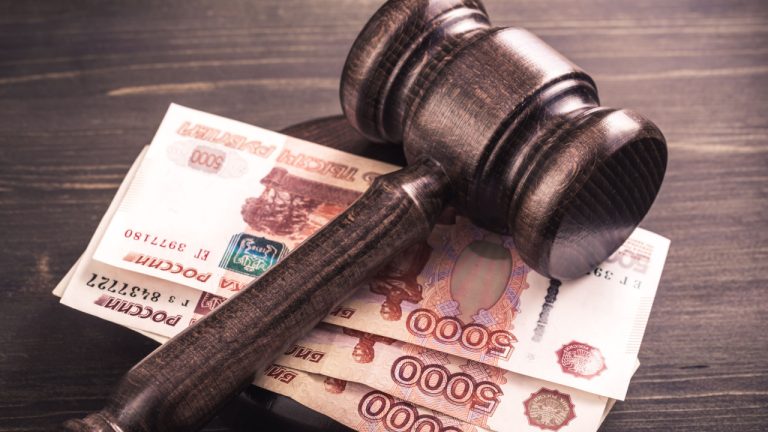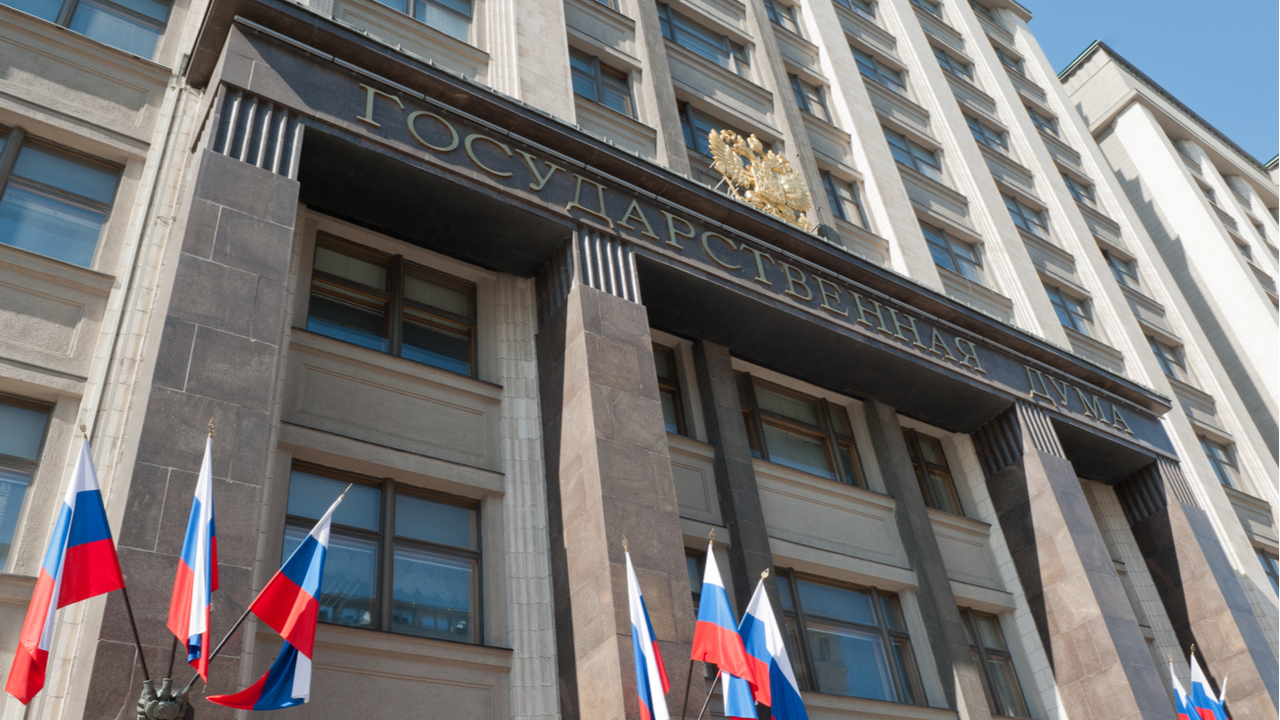 Thailand has introduced tighter rules that will oblige crypto companies to duly inform potential customers of the investment risks on their advertisements. The new regulations also prohibit businesses in the industry from making misleading or exaggerated claims.
Securities Watchdog Adopts Stricter Advertising Rules for Crypto Platforms in Thailand
Thailand’s Securities and Exchange Commission […]
Thailand has introduced tighter rules that will oblige crypto companies to duly inform potential customers of the investment risks on their advertisements. The new regulations also prohibit businesses in the industry from making misleading or exaggerated claims.
Securities Watchdog Adopts Stricter Advertising Rules for Crypto Platforms in Thailand
Thailand’s Securities and Exchange Commission […] Authorities in the energy-rich Russian region of Irkutsk have imposed hefty fines on crypto miners this year for illegal use of electricity to produce digital currencies. Power utilities have also filed hundreds of lawsuits, a report reveals, quoting prosecutors. Irkutsk Crypto Miners Pay 100 Million Rubles in Fines in 2022 Cryptocurrency mining has become a […]
Authorities in the energy-rich Russian region of Irkutsk have imposed hefty fines on crypto miners this year for illegal use of electricity to produce digital currencies. Power utilities have also filed hundreds of lawsuits, a report reveals, quoting prosecutors. Irkutsk Crypto Miners Pay 100 Million Rubles in Fines in 2022 Cryptocurrency mining has become a […]
The Dutch central bank said that the Binance crypto exchange had a “very large number of customers in the Netherlands."
Major global cryptocurrency exchange Binance is facing a penalty in the Netherlands after failing to obtain regulatory approval to operate in the country.
The central bank of the Netherlands (DNB) has fined Binance Holdings 3.3 million euros ($3.3 million) for offering local crypto services without registration with authority. The Dutch central bank officially announced Monday that the regulator imposed the administrative fine in April 2022.
The DNB pointed out that any company offering crypto services in the Netherlands is obliged to register with the central bank in compliance with the Money Laundering and Terrorist Financing Prevention Act. The regulator also mentioned that the DNB previously issued a public warning to Binance on Aug. 18, 2021.
According to the announcement, the DNB applied a bigger penalty to Binance due to the platform’s large trading volumes. According to the regulator, Binance had a “very large number of customers in the Netherlands,” while its daily trading volumes amounted to “$13.7 billion.”
The increased penalty was also due to prolonged violations by Binance, the DNB stated. According to the bank, the violations occurred from May 2020 — when the DNB introduced the registration obligation — until the bank closed the investigation in December 2021. “DNB, therefore, considers these violations to be very serious,” the regulator noted.
The central bank also mentioned that Binance submitted an application to register, and the registration process is now being addressed. As the exchange has moved to comply with the law and has been transparent about its business operations, the DNB reduced the total amount of the fine by 5%, the announcement notes.
Related: Binance gets VASP registration for its Spanish subsidiary from the Bank of Spain
A spokesperson for Binance told Cointelegraph that the company reached a critical milestone in meeting Dutch regulatory requirements through a locally established entity, Binance Nederland BV. The event marks a long-awaited pivot in our ongoing collaboration with the Dutch Central Bank as well as the firm's growing engagement with global regulators, the representative said, adding:
"While we do not share the same view on every aspect of the decision, we deeply respect the authority and professionalism of Dutch regulators to enforce regulations as they see fit. With this now behind us, we can continue pursuing a more traditional operating model in the Netherlands."
Binance did not directly confirm or deny to Cointelegraph whether the firm has paid the fine so far or not. According to the announcement, Binance objected to the fine on June 2, 2022.
 According to a Securities and Exchange Commission (SEC) judgment, Jimmy Gale Watson, a former associate of the now deceased John McAfee, has been fined for being paid to promote pump and dump-fashioned initial coin offerings (ICOs). The SEC has ruled that Watson must pay roughly $375K in penalties and he’s not allowed to participate in […]
According to a Securities and Exchange Commission (SEC) judgment, Jimmy Gale Watson, a former associate of the now deceased John McAfee, has been fined for being paid to promote pump and dump-fashioned initial coin offerings (ICOs). The SEC has ruled that Watson must pay roughly $375K in penalties and he’s not allowed to participate in […] Iran’s state-owned power distribution company, Tavanir, has threatened harsher measures to discourage unauthorized crypto mining. These include much higher fines for those minting digital currencies with subsidized electricity and penalties for government officials involved in mining. Tavanir Raises Fines for Illegal Cryptocurrency Mining The Iran Power Generation, Transmission and Distribution Company (Tavanir) has adopted new, […]
Iran’s state-owned power distribution company, Tavanir, has threatened harsher measures to discourage unauthorized crypto mining. These include much higher fines for those minting digital currencies with subsidized electricity and penalties for government officials involved in mining. Tavanir Raises Fines for Illegal Cryptocurrency Mining The Iran Power Generation, Transmission and Distribution Company (Tavanir) has adopted new, […] A bill introducing financial penalties for those who illegally issue or exchange digital financial assets has been filed in the Russian parliament. The legislation has been submitted by the sponsor of another draft law banning their use as a means of payment. New Bill Targets Russian Platforms Issuing and Trading Digital Currencies Outside Law Persons […]
A bill introducing financial penalties for those who illegally issue or exchange digital financial assets has been filed in the Russian parliament. The legislation has been submitted by the sponsor of another draft law banning their use as a means of payment. New Bill Targets Russian Platforms Issuing and Trading Digital Currencies Outside Law Persons […] Authorities in Iran have shut down close to 7,000 unauthorized facilities for cryptocurrency mining in the past two years, local media revealed. According to a report, most of the illegal bitcoin farms were concentrated in five provinces of the Islamic Republic, including Tehran. Iran Continues Crackdown on Unlicensed Cryptocurrency Mining Iranian officials have unplugged and […]
Authorities in Iran have shut down close to 7,000 unauthorized facilities for cryptocurrency mining in the past two years, local media revealed. According to a report, most of the illegal bitcoin farms were concentrated in five provinces of the Islamic Republic, including Tehran. Iran Continues Crackdown on Unlicensed Cryptocurrency Mining Iranian officials have unplugged and […]
The penalty comes after months of heightened regulatory attention to crypto lending platforms.
On Feb. 14, the Securities and Exchange Commission, or SEC, announced actions against crypto lending company BlockFi over its failure to register high-yield interest accounts that the agency deems to be securities.
New Jersey-based BlockFi will pay $50 million in settlement to the SEC and another $50 million to 32 U.S. states that brought similar charges. These are some of the heaviest penalties ever imposed by a U.S. federal regulator on a cryptocurrency service provider. The firm also agreed to stop onboarding new customers to the unregistered service, BlockFi Interest Accounts, and attempt to bring it into compliance with the Investment Company Act of 1940 within the next 60 days.
BlockFi Interest Accounts, launched in March 2019, allowed investors to lend their crypto assets to the platform in exchange for monthly interest payments of up to 9.5% — significantly higher rates than interest-bearing deposit accounts in most traditional financial institutions offer.
Despite the widespread critique that securities laws written in the 1930s and 1940s could have limited applicability to digital asset-based products, SEC chairman Gary Gensler lauded the settlement as an instructive precedent for crypto lending platforms. Gensler said in a statement:
"Today’s settlement makes clear that crypto markets must comply with time-tested securities laws, such as the Securities Act of 1933 and the Investment Company Act of 1940. It further demonstrates the Commission’s willingness to work with crypto platforms to determine how they can come into compliance with those laws."
Cryptocurrency lending products began attracting increased scrutiny from both federal and state regulators last September. According to a January report, the SEC was investigating products similar to BlockFi Interest Accounts offered by Gemini, Celsius Network and Voyager Digital to determine whether these offerings constituted securities.

MASAK found Binance Turkey guilty of violating the Law on Prevention of Laundering Proceeds of Crime, also known as the AML Law.
The Financial Crimes Investigation Board (MASAK), which serves as Turkey’s financial intelligence unit under the Ministry of Finance and Treasury, found crypto exchange Binance’s Turkey operations guilty of violating laws that intend to prevent the laundering of money acquired through criminal means. According to local news media Anadolu Agency, MASAK carried out an audit of Law No. 5549 on Prevention of Laundering Proceeds of Crime, also known as the AML Law.
The AML Law in Turkey requires companies to identify and verify the personal identification information of the customers on the platform, which includes details such as surname, date of birth, T.C. identification number (Turkey equivalent of a social security number) and type and number of identity documents. The law also requires businesses to immediately notify the government about suspicious activities within a 10-day period.
As Cointelegraph Turkey reported, the watchdog imposed the maximum possible administrative fine of 8 million Turkish lira for the alleged violation. Additionally, this timeline also coincides with the day President Erdoğan announced the completion of a crypto law draft that will soon be handed over to the Parliament for approval.
With this, Binance also becomes the first crypto business to get fined by the Turkish government. Moreover, MASAK is working closely with Financial Action Task Force (FATF), a global regulator against money laundering and terrorist financing, according to former Treasury and Cost Minister Lutfi Elvan:
“FATF has asked for measures to be taken against crypto trading platforms.”
In line with this request, MASAK has also agreed to report transactions that exceed the value of 10 thousand lira within 10 days.
Related: Turkey’s crypto law is ready for parliament, President Erdoğan confirms
Turkey's President Recep Tayyip Erdoğan confirmed the completion of a crypto law that will soon be handed over to the Parliament for mainstream implementation.
As Cointelegraph reported, the crypto law envisions a new economic model that can bolster Turkey’s effort to bring back the depreciating value of lira. Erdoğan also said that the recent inflation on Turkish lira is not related to mathematics but a matter of process — implying a possibility and potential of lira’s value growth:
“With this understanding, we intend to channel it to a dry spot. But the exchange rate will find its own price on the market.”
The Financial Crimes Investigation Board (MASAK) has fined Binance Turkey 8 million lira (nearly $750,000) after the crypto exchange failed the financial watchdog’s audit for monitoring Anti-Money Laundering (AML) compliance.

The country wishes to see all crypto activities take place on platforms regulated by SEBI.
On Tuesday, BloombergQuint (Bloomberg India) reported that the penalty for non-compliance with the Indian government's crypto policies could range from a maximum fine of 20 crore rupees ($2.7 million dollars) or 1.5 years in jail. Prime Minister Narendra Modi will likely give cryptocurrency investors a deadline to comply with new rules and declare their assets. While the regulatory environment in the country holds a high degree of uncertainty, reports have indicated that investors' crypto must soon be held in exchanges operating under the oversight of the Securities and Exchange Board of India, or SEBI.
This would mean that private wallets would not be legal under the proposed legislation, and investors who use them could be subjected to the aforementioned judicial penalties. In addition, Modi's government plans to institute a minimum capital threshold for investing in cryptocurrencies.
India is taking a hard-line stance against crypto due, in part, to the perceived rise in fraud, money laundering and terrorist financing in recent years. Another element, however, is that the competition from privately-owned or privately-issued cryptocurrencies would, in theory, threaten the Reserve Bank of India's plans to launch a digital rupee. The official text from an ongoing controversial crypto bill in the country is as follows:
"To create a facilitative framework for the creation of the official digital currency to be issued by the Reserve Bank of India. The Bill also seeks to prohibit all private cryptocurrencies in India; however, it allows for certain exceptions to promote the underlying technology of cryptocurrency and its uses."